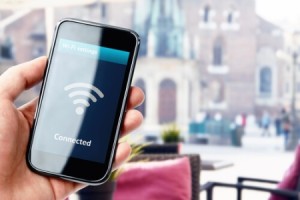Study Highlights Security Concerns On Public Wi-Fi
 If you use public Wi-Fi to look at your bank accounts and credit card statements, you might want to think twice before logging in. A new campaign from AARP is alerting the public to the risks involved with using unsecured Wi-Fi networks to access sensitive personal information.
If you use public Wi-Fi to look at your bank accounts and credit card statements, you might want to think twice before logging in. A new campaign from AARP is alerting the public to the risks involved with using unsecured Wi-Fi networks to access sensitive personal information.
The “Watch Your Wi-Fi” campaign tells folks how they can protect themselves from hackers and would-be identity thieves. A survey done by the AARP Fraud Watch Network showed that close to half of all consumers in the US log on to an unsecured public Wi-Fi network at least once every few months. A little over one-third of them have shopped online with a credit card, more than a third have done online banking, and over 70% have used public Wi-Fi to access their email and social media accounts.
Frank Abagnale, AARP’s Fraud Watch Network Ambassador, said that although free public Wi-Fi is convenient, it’s best used for general Internet-surfing, reading the news, or checking the weather forecast. “People too often put themselves at risk of identity theft by using unsecure public Wi-Fi,” he said.
The AARP campaign aims to not only educate the public, but to urge businesses to post warnings about using their unsecured networks. They’re providing posters that can be hung in coffee shops and other retail establishments that offer free Wi-Fi to customers. The posters offer tips, as well as a list of “Four Things Never to Do on Public Wi-Fi.”
The four things are:
• Never access email, bank accounts, or credit card accounts when using public Wi-Fi.
• Watch out for fake Wi-Fi networks set up with similar names to the coffee shop, hotel, or other place you access free Wi-Fi. Thieves use this strategy to lure unsuspecting web-surfers.
• Do not set your mobile device to automatically connect to any available public Wi-Fi network.
• Never surf an unknown public network that asks you for sensitive personal information.
Seventy percent of survey respondents said they’ve never seen a posted warning about using public Wi-Fi at an establishment that offers it. But two-thirds said they would feel better about the business they were patronizing if they did post such a warning.
The AARP Fraud Watch Network provides information about common frauds and scams, and offers prevention tips, educational quizzes, and videos presentations featuring Frank Abagnale. The 2016 Cyber Security Survey was conducted by telephone and included responses from 800 adults across the United States.
